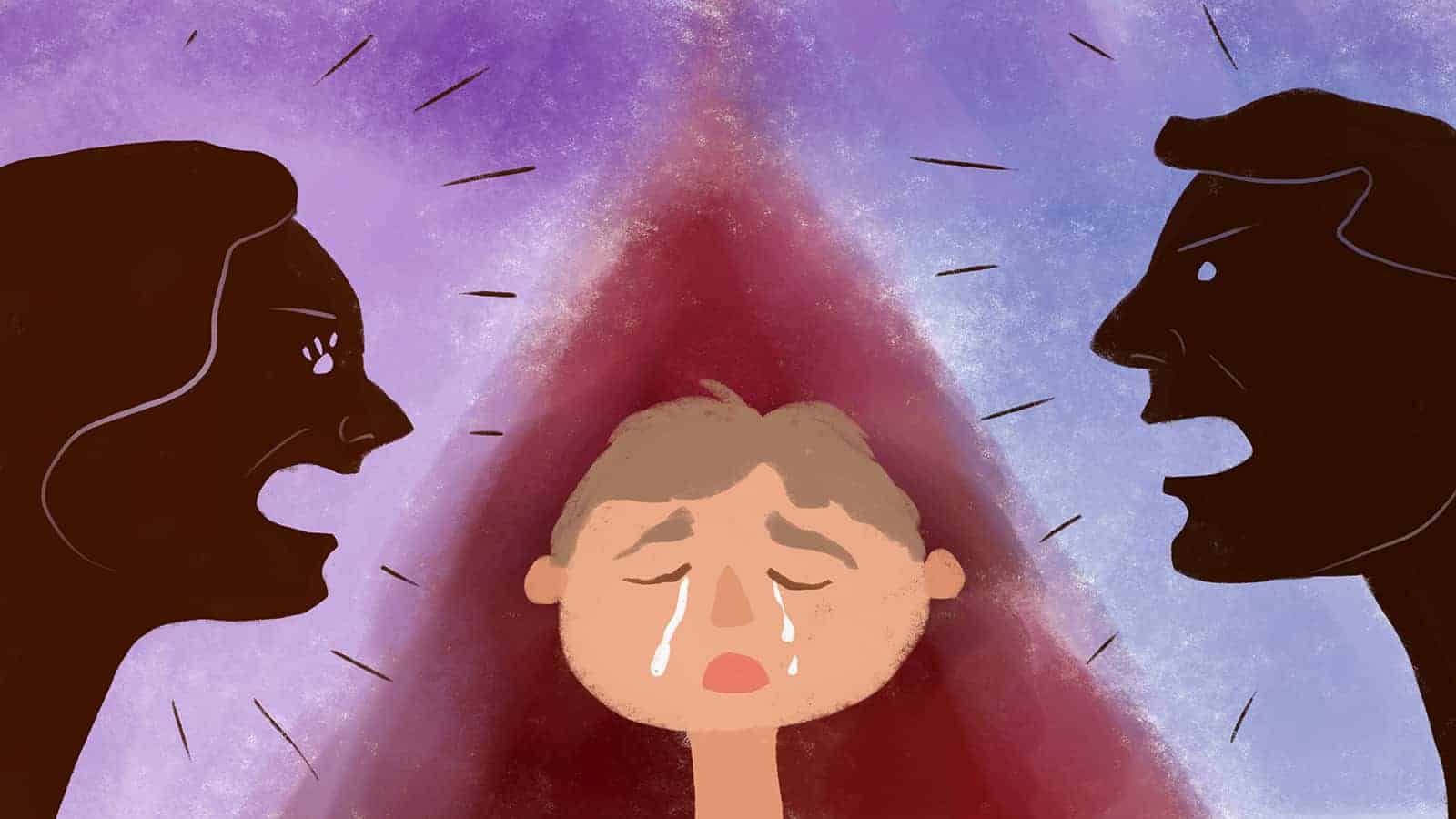Did you grow up in a home filled with parental narcissism? There are few perfect childhoods, so you must learn to make peace with the past to heal and empower yourself. Coming to terms with a parent’s mental illness is difficult.
Children need their parents to love, support, encourage, and nurture them through their formative years. Sadly, when a child is denied these essential things, you must develop coping mechanisms to get through them. In adulthood, you’ll use these same coping skills by habit, which can cause many relationship problems.
When you grow up with parental narcissism, it often contributes to soul loss. While this sounds like an odd term, it merely means you have unresolved wounds and traumas. All these failures and unresolved issues accumulate and alter your thought processes.
If you want to heal from what you endured as a child, you must acknowledge the wrong things you did to yourself. You can’t justify or condone these actions, as you must get to the root cause of your pain. Once you learn how to process, release, and move on, you will find that your whole outlook on life changes.
These Fourteen Things Reveal Parental Narcissism
If you grew up with a parent with mental illness, you’ve probably thought you were the one with the problem. It’s not abnormal to doubt yourself or your feelings toward your parents. Do you struggle with constant guilt over your childhood?If you suffered from parental narcissism, you probably feel tremendous guilt and shame from your upbringing. Don’t beat yourself up anymore. It’s time to recognize the signs of a parent having an issue so you can let yourself off the hook.
1. Your Parents Laid on The Guilt
Guilt is a standard tool that is used to control a person. For instance, if they want you to do something you don’t want to do, they can spew a list of all the sacrifices they’ve made for you.
They make you feel like you owe them or are indebted. Since narcissists are master manipulators, they can play the guilt card to make you putty in their hands.
2. Their Love Was Circumstantial
Sadly, most narcissistic parents control others through love. When you did something they were proud of, their love was overflowing.
However, when you make a mistake, they might say things detrimental to your esteem. They may have even gone as far as telling you that they didn’t love you. Another common trick is silent treatment, or they can become physically abusive.
3. They Got Even
It’s sad when parents act like children. They wanted to ensure you were punished when you defied them or did something wrong.
Like a child that wants to get even, they would break something that meant a lot to you or sabotage relationships. They were able to stoop to the lowest levels to get revenge.
4. Parental Narcissism Means Lies
Nothing is more challenging as a child than not having a trusting relationship with their parents. When your parent tells you that you’re going to have a birthday party or that you’re going to go to the mall on Saturday, you believe them.
However, the narcissistic parent will lie about all sorts of things. You’ve learned early that you can’t trust them or count on their promises, as they tend to be a pathological liar.
5. They Insulted You
Many children have stories of being bullied at school. However, few can say that their parents were the bully. When you’re growing and developing, you will go through many stages.
Who doesn’t have some pictures where their hormones and various seasons of life made them look frumpy? However, your parents always quickly point out everything negative about you. They were the first to call you names if you gained a few pounds.
Having insults hurled at you every time you mess up or about a physical characteristic takes years of therapy to get over. Your esteem is being built during the formative years, and your parents caused you low self-esteem.
6. They Were Controlling
Parents must control their children by nature. However, parental narcissism victims have a different kind of control unleashed on them. Parents can use emotional blackmail to get what they want.
Children who live with narcissists may go to bed without dinner, be grounded in their bedroom for several days, or not have any connections with the outside world. All this is done because the parent didn’t get their way.
7. Your Accomplishments Were Theirs
Your parent could never let you have the glory. If you got an “A” on your science project, they took the credit by saying they did most of the work.
If you went to college and got a good education, they may take credit, saying they pushed you to be all you could be in life. They cannot let anyone outshine them, even their children.
8. Parental Narcissism Relied on Fear Tactics
Some people don’t know how to parent, even if they don’t have a mental health disorder. The narcissist will use fear to get you to do what they want. For instance, they may have smacked you and left a bruise on your arm.
Rather than taking responsibility for their wrongdoing, they tell you you cannot tell anyone. Their reasons are because if you tell someone, then they will remove you from home and put you in foster care.
They will never see you again. Even as an abuser, the child still loves their parent. Fear tactics are commonplace when you try to manipulate others.
9. Your Feeling Were Never Considered
Your parents had one agenda, and that was to better themselves. They would move you across the country, uproot you from schools, and do horrible, manipulative things. However, they never one time took your thoughts or feelings into consideration.
Not all decisions come down to the child’s thoughts, but you never had anyone listen or even care about your hurts. Even if it was just a breakup for a boy or girlfriend from school, they didn’t have time to hear about your heartbreak.
10. They Have a “Golden Child”
While most parents say they don’t have a favorite, most do. The key is that each child has a unique personality, and it’s easier to have a relationship with some more so than others. Remember the story of Cinderella?
The evil stepmother had two daughters whom she loved dearly, and Cinderella was quite loathed. You might have grown up in a situation where you felt like the outcast because you clearly weren’t your parents’ pick. The “Golden Child” gets by with things you could never have done.
11. They Used Codependency Control Methods
Another common way that narcissists control is through codependency. Your parents may have wanted you to avoid going away to college or getting married. So, they would tell you they won’t live or go on if you leave home.
They may go as far as to say they will kill themselves or die because of loneliness. These tactics are just trying to manipulate you into doing what they want: to stagnate in a horrible situation.
12. Parental Narcissism Means a Lack of Proper Boundaries
You never grew up with healthy boundaries as a child. There was no space to call yours. Your parents would come into your room and go through diaries and your belongings like it was their stuff. Additionally, anything they found that was derogatory would be used against you to further their agenda.
13. They Used Gaslighting Techniques
A term to describe psychological manipulation is gaslighting. They would strive to make you feel like you’re going crazy to get the upper hand with you. As a result, you develop self-doubt, which carries on into adulthood.
14. There Was No Empathy
A lack of empathy usually identifies parental narcissism. They never seem to care when you are crying or hurt. The only thing that matters to them was their feelings. So, self-soothing techniques often handle your emotional breakdowns because no one is there for you.
Final Thoughts on Growing Up When You Cope With Parental Narcissism
Do you notice any of these signs from your childhood? How can you relate to these issues of growing up with a narcissist? If you find that this list outlines your upbringing perfectly, then there’s a good chance that you’re a victim of parental narcissism.
The good news is that you can rise above what happened to you and do better for your children. When you break the chains that the past holds on you, you open the door to freedom and live a new life free of this baggage.

















